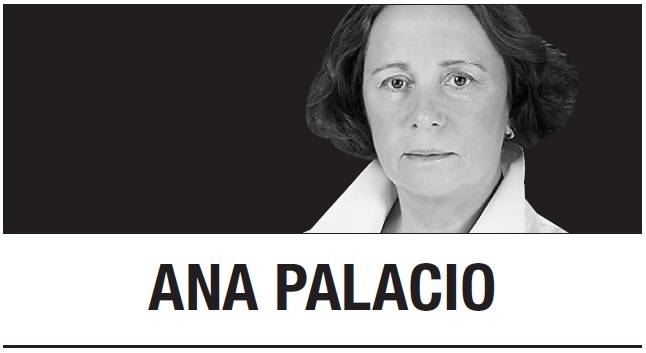 In Greek mythology, it was prophesied that Zeus’s first wife Metis, the goddess of wisdom, would bear a son who, equipped with his mother’s cunning and his father’s power, would eventually overthrow the king of the gods. To protect his position, Zeus swallowed the pregnant Metis whole. The prophesied usurper-son was never born.
In Greek mythology, it was prophesied that Zeus’s first wife Metis, the goddess of wisdom, would bear a son who, equipped with his mother’s cunning and his father’s power, would eventually overthrow the king of the gods. To protect his position, Zeus swallowed the pregnant Metis whole. The prophesied usurper-son was never born.The qualities of metis (cunning wisdom) and bie (raw power) fascinated the ancient Greeks. At some moments, they revered the former, embodied by Odysseus, the legendary hero of Homer’s epic poem the Odyssey. At others, they celebrated the latter, personified by great warriors like Achilles. But the ideal was a combination of the two. That remains true to this day.
Over the last seven decades, the United States seemed to have figured out how to strike the long-elusive balance between metis and bie. Endowed with abundant resources, free of regional competitors, and surrounded largely by oceans, the US was primed to be a global power. But it was the multifaceted, flexible nature of America’s leadership style -- which combined military, demographic, and economic advantages with a compelling cultural message and clever diplomacy -- that enabled the US to maintain its position as the world’s preeminent superpower.
Rather than exerting its will on the rest of the world solely by force, the US positioned itself as a systemic power committed to upholding a broader world order that ultimately served everyone’s interests. Using both carrots and sticks, the US convinced countries that they were better off participating in that order than rejecting it. This combination of persuasion and sheer strength -- metis and bie -- formed the basis of US global leadership.
US President Donald Trump’s administration, however, is throwing this carefully calibrated system into disarray. Trump is attempting to use raw power alone to force his “America First” agenda on the rest of the world.
There are ample examples of Trump’s predilection for power. It is reflected in his pressure on European countries not only to spend more on defense to fulfill their NATO obligations but also to continue to channel that spending toward US-made weapons systems. It is also evident in his bellicose threats against America’s purported enemies. Most recently, the Trump administration has been beating the war drum against Iran, using murky intelligence about mysterious explosions that have crippled six commercial tankers in the Gulf of Oman since May to justify a military buildup in the region.
Trump’s tendency to rely on brawn, rather than brains, is further evidenced by the US’s zealous use of economic tools -- namely, sanctions and tariffs -- to advance its policy interests. The escalating trade war with China has drawn headlines. But Trump’s recent threat to impose crippling tariffs on imports from Mexico unless that country’s government curbed migration across its northern border was particularly telling.
And yet the message of history is clear: by embracing force and eschewing persuasion, the US is undermining its own authority -- and courting catastrophe. That is what happened in 1950, when Gen. Douglas MacArthur, after driving North Korean forces out of the South, heedlessly marched north, where his forces and their allies encountered -- and were overrun by -- Chinese forces.
It is also what happened in 1964, when the US used attacks by North Vietnamese torpedo boats on American destroyers in the Gulf of Tonkin as a pretext for adopting a congressional resolution that allowed President Lyndon B. Johnson, and then President Richard M. Nixon, to escalate US military involvement in the Vietnam War.
The US made a similar mistake in the 2000s in the course of the War on Terror, which relied on massive force and shunned the strategic cunning favored by many American diplomats, sowing instability throughout an already-fragile Middle East.
Of course, US leadership also suffers when the pendulum swings too far in the opposite direction. Trump’s predecessor, Barack Obama, leaned so heavily on soft persuasion that the US lost much of its credibility as a guarantor of global stability.
For now, the US still has enough power to force countries to bend to its will. But the world is already working to change that. There is a growing push away from dollar-denominated transactions. The European Central Bank is promoting increased use of the euro internationally, while China signs currency-swap agreements to promote the yuan.
The last several decades of American power have, on the whole, been good for the world. What comes next may not be so benign or productive. To preserve and perpetuate its power -- and support global peace and prosperity -- the US must walk a fine line between cunning and force. And Trump is hardly known for keeping his balance.
Ana Palacio
Ana Palacio is former minister of foreign affairs of Spain and former senior vice president and general counsel of the World Bank Group. She is a visiting lecturer at Georgetown University. -- Ed.
(Project Syndicate)
-
Articles by Korea Herald



![[AtoZ into Korean mind] Humor in Korea: Navigating the line between what's funny and not](http://res.heraldm.com/phpwas/restmb_idxmake.php?idx=644&simg=/content/image/2024/04/22/20240422050642_0.jpg&u=)

![[Exclusive] Korean military set to ban iPhones over 'security' concerns](http://res.heraldm.com/phpwas/restmb_idxmake.php?idx=644&simg=/content/image/2024/04/23/20240423050599_0.jpg&u=20240423183955)

![[Herald Interview] Why Toss invited hackers to penetrate its system](http://res.heraldm.com/phpwas/restmb_idxmake.php?idx=644&simg=/content/image/2024/04/22/20240422050569_0.jpg&u=20240422150649)
![[Graphic News] 77% of young Koreans still financially dependent](http://res.heraldm.com/phpwas/restmb_idxmake.php?idx=644&simg=/content/image/2024/04/22/20240422050762_0.gif&u=)







![[Exclusive] Korean military to ban iPhones over security issues](http://res.heraldm.com/phpwas/restmb_idxmake.php?idx=652&simg=/content/image/2024/04/23/20240423050599_0.jpg&u=20240423183955)



![[Today’s K-pop] Ateez confirms US tour details](http://res.heraldm.com/phpwas/restmb_idxmake.php?idx=642&simg=/content/image/2024/04/23/20240423050700_0.jpg&u=)